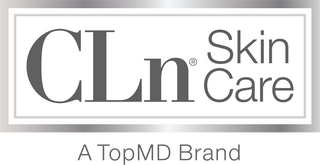
Acne is the most common skin condition in the United States, with more than 30% of adult women and more than 20% of adult men experiencing it.
Of course, knowing that it’s a common experience and fighting through it yourself are two different things, and many people find back acne to be equal parts frustrating and embarrassing.
The good news? You don’t have to wait for back acne to clear up on its own. There are a lot of available treatment options for you to carry on your day with confidence. Here are three common ones (including a few tips you might not expect).
Protect Your Skin from the Sun
The Better Way to Cleanse Your Skin
Over-the-Counter Medications
Over-the-counter medication (a.k.a. medication you can buy without a prescription) is a common way to clear up mild to moderate back acne. These typically aim to manage infection, reduce skin irritation, and unclog your pores.
Two common OTC medications for back acne include benzoyl peroxide and retinoids. Benzoyl peroxide helps kill the bacteria in acne, which will help reduce inflammation. The higher the percentage, the stronger the solution, which means it’s tougher on bacteria but also tougher on your skin. Retinoids are often recommended for use with benzoyl peroxide, as it works to unclog pores. The combination of these products can cause skin drying and increase sun sensitivity. Therefore moisturizers that do not cause acne (non-comedogenic) and sun protection are necessary.
Good Skincare Habits
All the medicine in the world won’t be enough to cure bad skincare habits. So if you’re not taking care of your skin, now is the time to start.
For example, while you might think that a good hard scrub is just what the doctor ordered, washing the skin too harshly is a one-way ticket to skin irritation. This applies to exfoliating tools (washcloths, loofahs, exfoliating gloves) and even to exfoliating scrubs, which can easily cause microabrasions that invite opportunistic infections.
If you work out regularly, skincare should be built into your workout priorities. For example, you should always shower immediately after working out–otherwise, sweat and bacteria sit on your skin. You should wear clean workout clothes each time you exercise, preferably loose-fitting ones made of sweat-wicking material.
Protect Your Skin from the Sun
Many people think that a bit of sunshine is the best way to clear up acne. In reality, that sunshine can make your acne worse, since the sun’s UV rays can cause acne to darken and last longer (never mind other skin damage associated with strolling in the sun unprotected).
Do your skin a favor and protect it from the sun. Ideally, you should wear sunscreen every day–the worst sun damage happens in small increments over time, and if it’s light enough to see your hand in front of your face, it’s light enough for sun damage.
Look for an oil-free broad-spectrum sunscreen of at least SPF 30 or higher.
The Better Way to Cleanse Your Skin
We know that back acne is frustrating, but it doesn’t have to dog your every step. You just need the right tools. And if you’re looking to swap out your abrasive acne wash for something gentle and trusted by physicians, it’s time to check out our skincare products for acne-prone skin. They’re physician-designed and approved to be gentle on skin but tough on acne.
That way, you can carry on your day with confidence.
